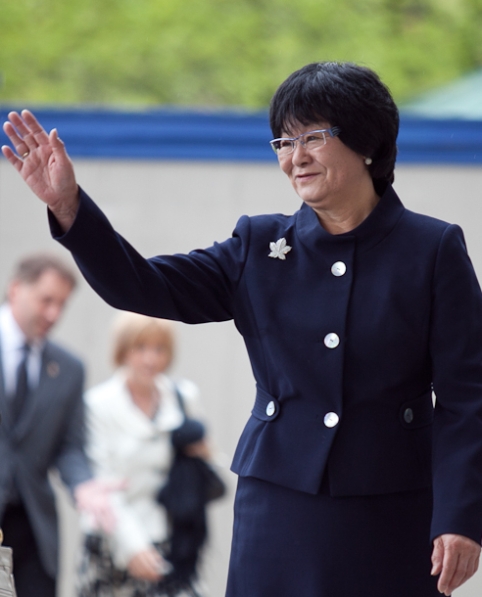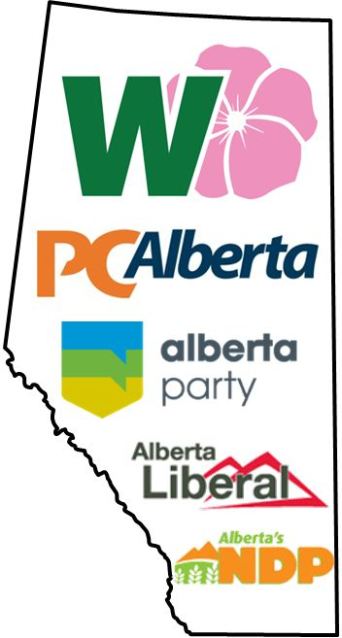Today, Prime Minister Stephen Harper made news by pledging to outlaw travel to areas of the world that are “ground zero for terrorist activity.” These are places that are, according to the Prime Minister, “the most dangerous on earth, where governance is non-existent and violence is widespread and brutal.”
The CBC reports that parts of Syria and Iraq would likely be among the first areas to be subject to this travel ban. Under the proposed legislation, aid workers, diplomats and journalists would be able to qualify for an exception. For the rest, the Prime Minister stated that traveling to these places are “not a human right.”

The PM doesn’t want you to see evil (Sean Kilpatrick/Canadian Press)
Depending on your definition of human right, the Prime Minister might be, Constitutionally speaking, dead wrong. Section 6(1) of the Canadian Charter of Rights and Freedoms allows every citizen of Canada to enter, remain in and leave Canada. But what does the freedom to leave Canada really mean?
Courts have interpreted section 6(1) before, but typically in the context of the right to stay in Canada or to return to Canada. For example, in United States of America v. Cotroni, the context was an extradition of a Canadian citizen to the United States to face criminal charges. The Supreme Court of Canada stated “the right to remain in one’s country is of such a character that if it is to be interfered with, such interference must be justified as being required to meet a reasonable state purpose.” Likewise in Abdelrazik v. Canada, the Federal Court was dealing with the denial of re-entry to a Canadian citizen accused by the United Nations of engagement in terrorist activities. The court stated that section the right to enter Canada “is not to be lightly interfered with.”
This case, however, concerns someone’s freedom from a government restriction on areas outside of its control, as opposed to a right to avoid government force inside of that country. We aren’t talking about a government actively kicking you out of a country or barring you from entering. We are talking about a government prohibiting you from visiting another sovereign land.
I believe travel bans like the one proposed by the Prime Minister impair one’s ability to exercise their freedom to leave the country. Canadians should be skeptical and resistant to any attempt to curb their freedoms, especially since Canadian courts clearly recognize its importance. It is wrong for the government to take any freedom away unless and until it can be proven to be necessary.
Therein lies the discussion. No Charter right is absolute. Section 1 of the Charter states that every right and freedom is “subject only to such reasonable limits prescribed by law as can be demonstrably justified in a free and democratic society.” Determining whether something has been demonstrably justified is a two-part test:
- Law has a goal that is both “pressing and substantial.”
- The law’s limiting of a Charter right is rationally connected to its purpose, it impairs the Charter right as little as possible and it is proportionate to the right being violated
Certainly the Charter does not explicitly say one must be free to travel to wherever one desires; however, the freedom to leave Canada cannot simply extend to some arbitrary location. Canadians must be able to select their destination freely without government interference (again, unless that interference is justified).
Consider the alternative. If the freedom to leave Canada did not extend in some way to our destinations, then the government would face no Constitutional restrictions by prohibiting travel to every country except one, say New Zealand. Of course no government would do this, but the point is that s.6(1) would certainly prohibit such a terrible scenario (although not quite so terrible for the Kiwi tourism industry). If the foregoing is true, then s.6(1) must have some regard to the destinations we select.
Once the Canadian Government bars you from choosing your destination, I believe such a law necessarily violates our freedom to leave Canada. The consequence of that denial is not necessarily that you cannot choose to leave Canada through some means or another. The consequence is that your Charter-guaranteed freedom to leave Canada has necessarily been impaired.
We will need to see the details and reasons of the proposed law before concluding whether the law is justified. In the meantime, Canadians should be apprehensive at the possibility of losing our very important freedoms, particularly our ability to leave the country to wherever we choose to go. We need to say that we will only surrender our right to travel to any given area if there is a really good reason to do it, even if those places are “ground zero for terrorist activity.”

 Image Stolen From the Edmonton Journal
Image Stolen From the Edmonton Journal








